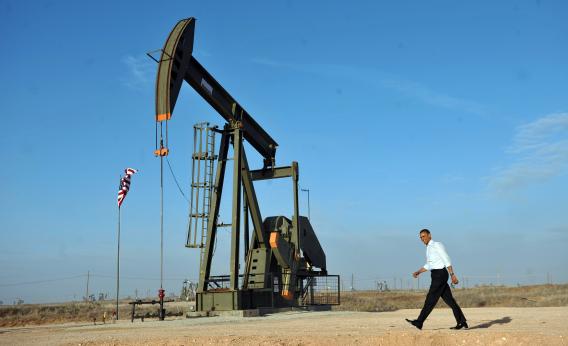
 America’s energy boom is spurring a clash between the realms of politics and economics. Meaningful exports of oil have been banned for almost a century. But with output surging and crude fetching a 20 percent discount at home, producers want to ship it overseas. BP, Royal Dutch Shell and four others have applied for limited licenses to do just that. Unblocking trade could benefit everyone.
America’s energy boom is spurring a clash between the realms of politics and economics. Meaningful exports of oil have been banned for almost a century. But with output surging and crude fetching a 20 percent discount at home, producers want to ship it overseas. BP, Royal Dutch Shell and four others have applied for limited licenses to do just that. Unblocking trade could benefit everyone.The 1920 Mineral Leasing Act allows producers to sell only tiny amounts of black gold abroad. Even shipments to Canada require a special license – BP has just secured one. At present America exports just 47,000 barrels a day, against imports of over 8 million barrels. Yet production has shot up 32 percent since 2008.
The output surge has been gradually helping to make America more energy self-sufficient. The only drawback is that there’s not as much demand at home for the light sweet crude generated by new fields – and many U.S. refineries are configured to process heavy sour crude. On top of that, the pipeline network for transporting domestic crude is inadequate.
This prevents drillers from getting the full global price. Internationally traded Brent crude now sells for $21 a barrel more than U.S. crude, close to the widest gap this year. Selling it abroad where demand for light sweet crude is greater would allow them to capture the difference in prices. And exporting one type of crude while importing another wouldn’t change Uncle Sam’s overall energy balance.
But the export ban won’t be lifted without a fight. Even efforts to allow exports of America’s over-abundant natural gas have been resisted by energy nationalists like Congressman Ed Markey, ranking member on the House Natural Resources Committee, who believe this would raise domestic prices. Exporting crude is that much more sensitive. In addition, selling oil abroad, opponents argue, is at odds with the goal of reducing reliance on less-than-friendly states like Venezuela or troublespots like the Middle East.
Yet without exports, U.S. producers of both gas and oil will have little incentive to keep increasing output, because domestic constraints on demand could cause prices to drop further. That is in almost nobody’s interests. America wants pretty much everybody else’s oil to be accessible to U.S. consumers, yet keeps its own oil off world markets. That’s a political double standard that’s being put to the test by the economics of energy production.
Read more at Reuters Breakingviews



_jpg/250px-ElbeDay1945_(NARA_ww2-121).jpg)







